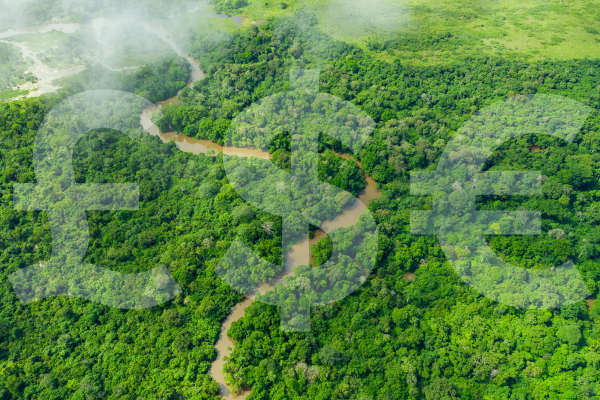The power of banking to drive change for individuals and the planet

Our latest article by Steve Round – Co-Founder of SaaScada, and Chair of the Governing Board Forum of the Global Alliance for Banking on Values (GABV)
When it comes to shaping a sustainable future, most people are very aware of the obvious suspects such as recycling, electric cars, green energy etc but switching banks can be a much more powerful, but relatively easy, way to take climate action. It isn’t often top of mind for most people when thinking about ESG, but personal banking can be a huge contributor to greenhouse gas emissions. It’s all down to where you are banked and what they choose to do with your hard-earned savings.
A recent report by Project Drawdown, in collaboration with Topo Finance, sheds light on how individuals can mitigate climate change through their banking decisions.
The report reveals staggering statistics, highlighting how the average person’s banking activities in the United States may indirectly contribute a significant portion of greenhouse gas emissions. This is because every dollar deposited in a bank has an associated carbon footprint, and this footprint will vary depending on how the bank lends and invests that dollar.
The report estimates that for 11 of the largest U.S.-based banks, the average estimated carbon intensity of lending is 0.24 metric tons of carbon dioxide equivalent greenhouse gas emissions (tCO2- eq) per US$1,000 per year.
This means that, on average, every US$1,000 an individual holds in savings is roughly equivalent to the direct emissions generated by a flight from New York to Seattle.
Moreover, eleven of the largest U.S.-based banks lend around 19.4% on average (and as high as 30%) of their portfolios to carbon-intensive industries. By harnessing newly available data, the report underscores the transformative potential of switching from carbon-intensive banks to climate-responsible ones. It’s estimated that such a switch could slash an individual’s banking-related emissions by a remarkable 76%.
Aligning your banking activities with your environmental goals
Wouldn’t it be wonderful if we had the same ability to choose where our banks invest our savings – just like we do with our investment portfolios. For this to happen, banks need to start being more transparent with where they are investing our savings, but to drive real change we need to start voting with our feet – or pounds in this case.
Whilst many individuals are already taking steps to minimise their environmental impact by measuring their personal carbon footprint, this goes a step further. It’s a powerful climate action with systemic implications. Just as consumers scrutinise their purchases and their investment portfolios for sustainability they could now leverage data to align their banking activities with their climate goals.
This is also becomes an opportunity for the banks as they can create products that better suit the needs of an increasing number of customers that would prioritise sustainability when choosing where to bank.
This shift isn’t just about reducing emissions; it’s about redirecting capital away from industries fuelling the climate crisis and towards those fostering a more equitable and sustainable world. Collectively banks have enormous power, and if they see that their clients want a different approach to how they use their money to create a more sustainable banking solutions, it will have a transformational effect globally.
Seeing a focus on sustainability in action
Investing in new technologies also makes solid business sense. For example; Triodos Bank is a leader in investing in renewables and has been named as the most active clean energy lead arranger by total number of deals in the past year. The top spot was achieved after the bank acted on 140 deals in 2022, with a total deal value of over half a billion US dollars ($504 million), incorporating traditional renewables such as onshore wind, solar and hydro, alongside EV charging, battery storage and energy efficiency projects.
Jacco Minnaar, CCO at Triodos Bank, said: “It has been clear to us for decades that energy systems need to shift from being fossil-based and large scale to clean energy that is accessible and affordable for everyone. Financial institutions such as banks have a critical role to play in committing to this transition to a low-carbon and more energy efficient future.
“Triodos Bank financed the first wind turbine in the Netherlands in 1986 and now has many years of unique experience in renewable energy finance. We provide funding to small and mid-sized projects that are often community-based and that many other banks might not be prepared to look at. These will be critical to creating resilient and balanced energy generation systems that are sustainable and fair.”
‘Sustainable’ isn’t just about the climate
The term ‘Sustainable banking’ has become a catchall phrase to describe banking with an ESG focus. Of course, this can come in many forms and it is open to greenwashing, but with the right transparency from the bank, their customers can learn exactly how their savings are being used – allowing them to make a conscious decision about how they want to focus their impact. For some, a focus on supporting local causes may be important, for others the focus will be more about avoiding anything to do with funding fossil fuel production or firearms manufacture.
It isn’t always directly about climate, sometimes it is about social impact. The power of financial data has never been more clearly demonstrated than the example of Amalgamated Bank in the United States. As members of the Global Alliance of Banking on Values, Amalgamated Bank instigated the introduction of a merchant code to allow anomalies in firearms purchases to be identified – data which, given support from governments, could prevent future mass shootings. In doing so they are risking the wrath of gun lobbies but they are persevering for the greater good.
Just think of the power the financial services industry can wield if we all work together to drive change for both our customers and the planet – one transaction at a time.



